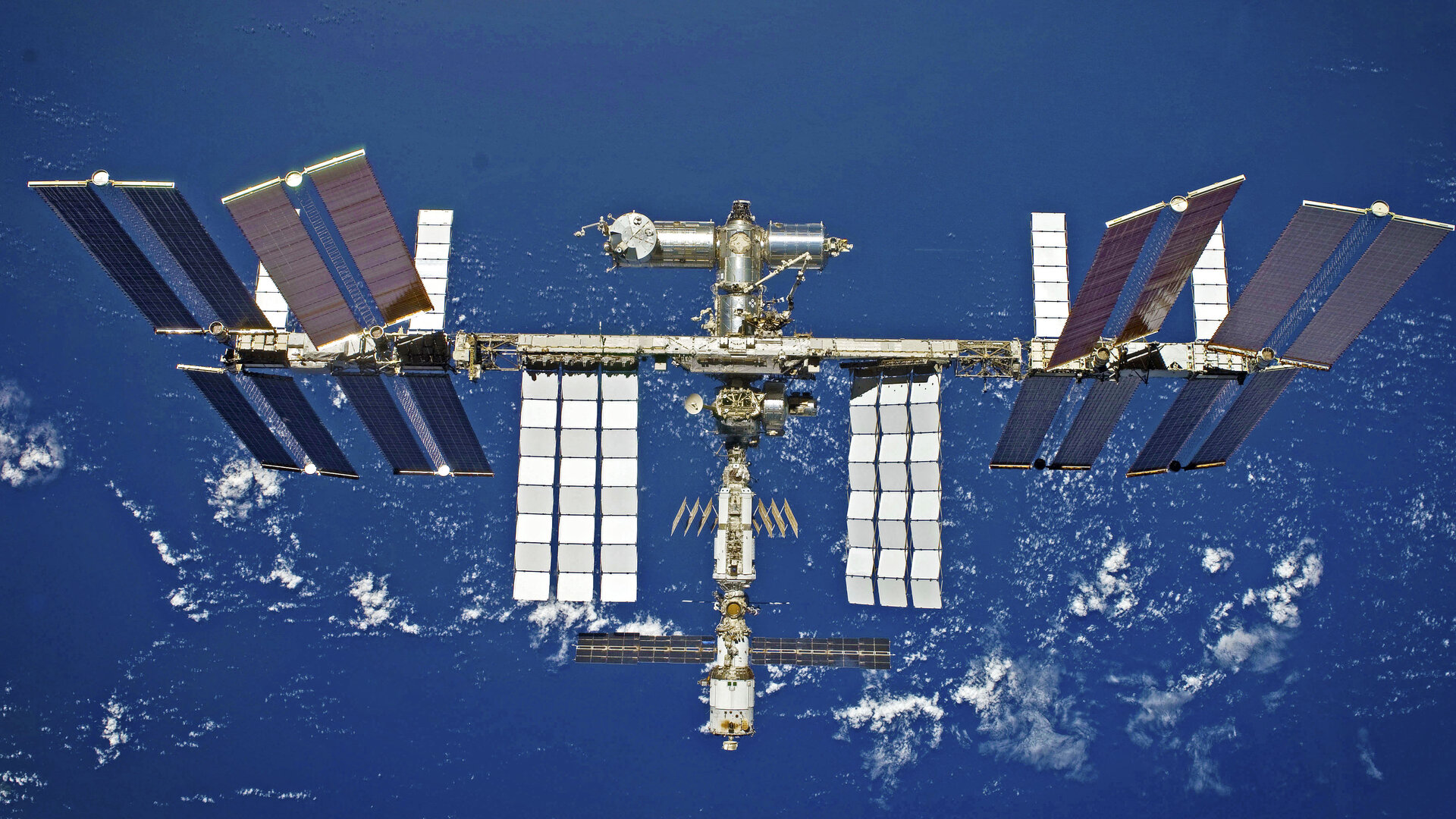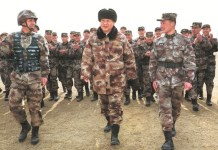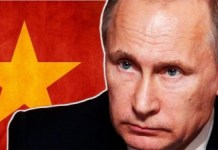While the Russian invasion of Ukraine is taking place on the ground, its ripples have impacted ties between the West and Russia, in space.
Russian employees at the Baikonur Cosmodrome, a spaceport in an area of southern Kazakhstan leased to Russia, have now marked the transporter vehicle used to carry Soyuz rockets into launch position with “V” and “Z” symbols.
Dmitry Rogozin, the head of Russia’s space agency Roscosmos, announced on 4 March about the markings on the transporter vehicle, claiming that they represent “solidarity” with Russian soldiers in Ukraine.
“Baikonur is in solidarity with the actions of our Armed Forces, supports our guys who are fulfilling their patriotic and military duty,” Rogozin said on Twitter.
Байконур солидарен с действиями наших Вооружённых сил, поддерживает наших парней, исполняющих свой патриотический и воинский долг. pic.twitter.com/41Ot31fWzd
— РОГОЗИН (@Rogozin) March 4, 2022
These markings “V” and “Z” have been regularly spotted on Russian trucks well as tanks in Ukraine. Some similar symbols, such as a white triangle with two lines on either side, red triangles, white circles, white triangles and white slashes, have also been observed on the vehicles which are taking part in the Ukraine invasion.
The markings, according to experts, are intended to act as identification signals to other Russian forces in order to avoid being hit by friendly fire. Others have argued that the marks could identify what units the vehicles belong to or where they are meant to go.
Impact on the Space Cooperation
The news comes as Russia’s state space corporation, Roscosmos, has recently issued another warning in response to international sanctions, stating that Russia will no longer sell RD-180 rocket engines to the US. ULA (United Launch Alliance) a joint venture between Boeing and Lockheed Martin, powers its Atlas V rocket using Russia’s RD-180 engine.
This, however, is just the latest in a long line of threats from the Russian space agency after President Joe Biden announced fresh sanctions against Russia, which will “degrade their (Russian) aerospace industry, including their space industry.”
Dmitry Rogozin responded with a series of tweets regarding the International Space Station: “Do you want to destroy our cooperation on the ISS? If you block cooperation with us, who will save the ISS from an uncontrolled deorbit and a fall on the United States or Europe? There is also the option of dropping a 500-ton structure to India and China. The ISS doesn’t fly over Russia, so the risks are all yours.”
Европы? Еще есть вариант падения 500-тонной конструкции на Индию и Китай. Вы хотите им угрожать такой перспективой? Над Россией МКС не летает, поэтому все риски – ваши. А вы к ним готовы?
Господа, вы когда санкции планируете, проверяйте тех, кто их генерирует, на предмет болезни— РОГОЗИН (@Rogozin) February 24, 2022
“We will closely monitor the actions of our American partners and if they continue to be hostile, we will return to the question of the existence of the International Space Station,” Rogozin said recently in an interview with Russian channel RT. “I would not like such a scenario because I expect that the Americans will cool down.”
On the other hand, NASA officials have stated several times in the last week that NASA and Roscosmos are still cooperating to keep the International Space Station operational.
“We’re not getting any indications at a working level that our counterparts are not committed,” says Kathy Lueders (NASA). “That said, we always look for how we get more operational flexibility, and our cargo providers are looking at how we add different capabilities.”

However, the idea of two organizations cooperating in space missions does not appear to be very promising. Russia, like the United States, wishes to explore on the Moon, Mars, and, eventually, Venus and Jupiter. However, as Roscosmos’ dwindling engagement in the ISS demonstrates that the Russian space agency no longer appears to be interested in collaborating extensively with the United States.
Instead of NASA, Roscosmos is preparing to lead its own space expeditions and collaborate with other countries. Following the announcement of the Artemis mission, a NASA-led multinational effort to explore and maintain a human presence on the lunar surface, Russia and China announced their own collaboration to achieve something similar.
Fate Of Ongoing Projects
The European Space Agency (ESA) has released a statement acknowledging sanctions against Russia due to the deteriorating ties between Europe and Russia. As a result, Roscosmos postponed the launch of many satellites that were planned to be launched using Russia’s Soyuz rocket from Europe’s spaceport in French Guiana.
Earlier, OneWeb, a satellite internet firm partially controlled by the British government, postponed a scheduled satellite launch using a Russian rocket and has put a stop to any future launches relying on Russia.

The satellites were meant to be delivered on March 4 via Soyuz, but Roscosmos is reportedly refusing to do so. The Russian agency asked the UK to sell its part in the company and guarantees that the satellites will not be utilized by its military. The United Kingdom has stated that it is unwilling to negotiate.
The ongoing battle appears to have no effect on near-term space cooperation. For example, astronaut Mark Vande Hei, along with two cosmonauts, is still slated to return to Earth on Russia’s Soyuz rocket at the end of this month.
NASA announced on Monday that Russia and the United States are collaborating on training sessions. Later this year, the agency is planning to carry cosmonaut Anna Kikina on SpaceX’s Crew Dragon.
- Contact the author at ashishmichel@gmail.com
- Follow EurAsian Times on Google News




